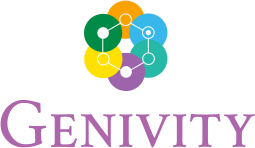People are living longer, working longer, and are more uncertain about their retirement than ever. It’s clear that financial and retirement literacy is important for people of all financial and lifestyle situations. Knowing how your finances will hold up over time and what expenses you may run into in your golden years is of utmost importance as you think about retirement planning.
It’s also a great time to bring up how their health impacts the potential draw on their retirement accounts. Using HALO, you can understand what the health care costs of your clients will end up being in retirement. This can give greater clarity to how both partners understand the retirement package as a whole and hopefully ease any anxieties that anyone is feeling about the length their money will last them.
While retirement literacy isn’t a female-only problem, it’s important to recognize that some women haven’t taken the time to concern themselves with it at all. Some are too busy, they are procrastinating, or have simply left it in their spouse’s hands. Whatever the reason may be for this shortfall in retirement proficiency, keep it in mind the next time you are with your clients and be sure that they leave the meeting feeling confident about their retirement.
In several upcoming posts, we’ll dive deeper into some of Dr. Amy’s recommendations including examples of how you can ask outcome-related questions, how to use life’s transitions as conversation starters, and the benefits to advisors of engaging in more meaningful conversations with clients.
For women, however, there is a disconnect in what we know to be important and how we take action on that knowledge. According to a recent study, a full 89 percent of women failed a retirement literacy quiz. There are likely several factors for why this is the case, the difficulty of the quiz itself being one of them, but it’s clear that many women are falling short when it comes to understanding the ins and outs of their retirement.
An Opportunity to Take Control
The most practical way for women to view these results as an area of opportunity rather than an inevitability is to find a trusted financial advisor that you can have these conversations with during the discovery/onboarding phase and beyond.
It’s acutely important that women have a solid grasp on what their retirement accounts entail and how they will be able to use them. Women, on average, outlive men and could easily find themselves in a situation where they are living on their spouse’s or their own retirement savings, pension, or some other type of fixed income for the remainder of their life. Increased longevity is reason enough to make retirement comprehension an important conversation topic in women’s lives.
According to that same survey, women have genuine concern about long-term care and guaranteed lifetime income. Two massively important issues in anyone’s life, only amplified by having a longer life expectancy. Unlike men, however, women are very open to asking for help and actually desiring that their financial planner engage with them about the topic.
This is why it is critical for you, as the advisor, to be ready for and proactive about these conversations with your clients. The average age of a widow in the US is 59, so even if your clients believe they have plenty of time to figure things out, the odds of that being true are not in their favor.
How Financial Advisors Can Help
While women may be lagging behind according to this survey, we don’t doubt that many men are as well. This is a good catalyst for asking your clients, both men and women, if they have questions, understand their retirement plan and the intricacies therein, and if they have any concerns about utilizing it in their post-retirement days.
As the advisor, you can help engage with women early and often by understanding that they are approaching conversations about money completely different than their male counterparts. Dr. Amy D’Aprix of Life Transitions by Dr. Amy suggests that advisors follow a life transitions approach to conversations that ties the non-financial to financial outcomes. These transitions have four implications that include: practical, emotional, family, and financial.
“Advisors need to rethink how they talk to clients about the non-financial implications of their decisions and then tie it back to money,” says Dr. D’Aprix.
It’s also a great time to bring up how their health impacts the potential draw on their retirement accounts. Using HALO, you can understand what the health care costs of your clients will end up being in retirement. This can give greater clarity to how both partners understand the retirement package as a whole and hopefully ease any anxieties that anyone is feeling about the length their money will last them.
While retirement literacy isn’t a female-only problem, it’s important to recognize that some women haven’t taken the time to concern themselves with it at all. Some are too busy, they are procrastinating, or have simply left it in their spouse’s hands. Whatever the reason may be for this shortfall in retirement proficiency, keep it in mind the next time you are with your clients and be sure that they leave the meeting feeling confident about their retirement.
In several upcoming posts, we’ll dive deeper into some of Dr. Amy’s recommendations including examples of how you can ask outcome-related questions, how to use life’s transitions as conversation starters, and the benefits to advisors of engaging in more meaningful conversations with clients.

